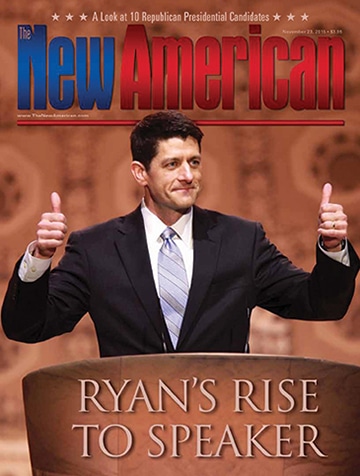How Best to Effect Change in Washington
Every four years, many good Americans put significant time and money into trying to elect a president who will rescue America from the downward spiral our country is now in and return America to greatness. But how much good does this work on presidential politics actually accomplish? In particular, how much does it accomplish compared to putting similar time and money into other efforts to preserve our freedom outside the presidential arena?
Of course, there is no denying that electing a good president — by which we mean a president who would abide by his oath of office to the Constitution — would be a great thing. But what are the chances of actually being able to elect a constitutionalist president in 2016, or in the foreseeable future for that matter, considering today’s political realities? The power elites who have shaped U.S. policy for decades exert tremendous influence through the cultural organs, especially the media. And the understanding of the American people as a whole is sadly lacking, making them susceptible to manipulation by political demagogues who say what the public wants to hear to get elected while not believing or even intending to abide by their own rhetoric.
Consider the 10 GOP presidential candidates profiled in the current issue of The New American. How many of them are trustworthy? How many would abide by the Constitution? And if the most constitutionalist-minded of the group were actually elected president despite the smears and dirty tricks that would be directed against him, how much good would he be able to accomplish?
The truth is that a constitutionalist-minded president would not be able to accomplish nearly as much good as a constitutionalist Congress would, for the simple reason that under our system of government all legislative powers reside in Congress. This includes appropriating the funds. The president, who is tasked with faithfully executing the laws of the United States, is not an elected dictator. Even regarding the war-making power, he may not take the country into war without a war declaration by Congress.
But how about a president who does act as an elected dictator, or at least attempts to do so? He would not be able to accomplish great harm — if most congressmen were constitutionalists willing to refuse funding for unconstitutional programs and rein in (through impeachment if necessary) a rogue president who usurps power.
It is certainly true that we do not have a constitutionalist Congress today, just as we do not have a constitutionalist president. But in terms of restoring good government in Washington, what is more realistically achievable: electing a constitutionalist to the presidency, or electing constitutionalists to Congress, particularly the House of Representatives?
The answer is obvious. The liberal establishment cannot influence the outcomes of 435 House races every two years to the same extent that they can one presidential race every four years. This is not only because of the sheer number of races and greater frequency of elections, but also because congressmen have much smaller constituencies and are closer to the people. Not only that, but in certain districts voters possess much better understanding than in other districts, and in those better-informed districts genuinely constitutionalist candidates have better chances of getting elected.
Yet even though it is more realistic to elect constitutionalist congressmen than a good president, not nearly enough constitutionalist congressmen are elected to restore good government in Washington. Why is that? The answer, simply, is the aforementioned lack of understanding of the voters. Ask yourself this question: If a constitutional candidate for Congress in the district where you live were to call for abolishing the income tax, ending the Federal Reserve, getting the United States out of the UN, etc., would he be electable? Such a candidate would not be viable if most voters lacked the understanding to agree with him on these issues.
But how about when sufficient understanding is created? Incumbent congressmen wishing to retain their seats would be forced to shift in the constitutionalist direction to preserve their own electability! And a growing number of candidates seeking to get elected for the first time would also advocate constitutional positions for the same reason. In a nutshell, the understanding of the voters would ultimately shape what happens politically, not the other way around. Robert Welch, the founder of The John Birch Society, the parent organization of this magazine, recognized the necessity of creating that understanding when he observed at the founding meeting of the JBS in 1958, “I am thoroughly convinced … that we cannot count on politicians, political leadership, or even political action except as a part of something much deeper and broader, to save us.”
Of course, we don’t recommend that anyone “drop out” of politics. But to maximize our effectiveness in the freedom fight, we do recommend that constitutionalists carefully consider concentrating more on creating sufficient understanding than simply trying to elect someone, and concentrate more on improving Congress than the presidency.


